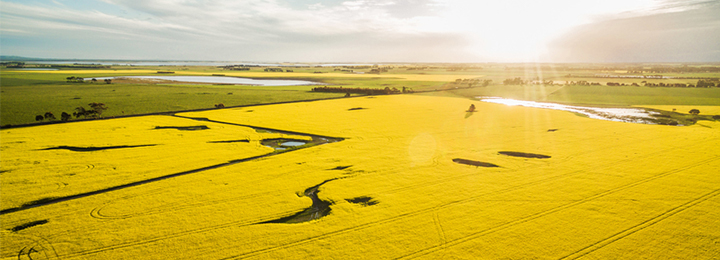In Australia, wheat accounts for more than one-fourth of the total value of crops produced in the country. In terms of all agricultural commodities produced nationwide, wheat is second only to cattle.
Interestingly, Australia is a relatively small producer of grain, with its wheat production accounting for around 3% of the annual world production. Due to low domestic consumption, about 70% of Australian wheat is exported. This high export surplus results in Australia being one of the five largest exporters worldwide.
Wheat has the largest number of hectares treated, and fungicides account for the vast majority of seed treatments. No seed treatment products are registered for soybeans in Australia, therefore no market for soybean seed treatment is accounted. Maxim XL is the leading brand, accounting for 18% of the entire seed treatment market, followed by Raxil and Vibrance. The primary insecticides used for seed treatment are Gaucho 600 and Cruiser Opti.
Syngenta is the leading supplier of seed treatment chemicals in 2018, representing over 50% of the total market, followed by Bayer and Arysta LifeScience. Syngenta has a strong market share for wheat and canola seed treatment products; however, for wheat seed treatments, Bayer leads in market share.
Approximately half of the wheat crop planted, as a national average, receives a seed treatment, found surveys conducted by the GRDC and interviews conducted by Kline. This percentage varies from region to region and is highest in the southern region.
Seed treatment is generally done either by the growers themselves or by seed grading companies that go from farm to farm to grade the seed and apply seed dressing. It is a common practice, particularly in South Australia, New South Wales, and Victoria, to utilize seed graders.
In Western Australia, it is more common for the farmers themselves to apply seed treatments. Seed growers in Western Australia use relatively less seed treatment products, and particularly in this region, the awareness of the benefits of seed treatment products is rapidly increasing, driving the wheat seed treatment segment’s growth. The market for wheat seed treatment is expected to reach AUD 20.0 million by 2023, growing at a compound annual growth rate of 5.9%.
One of the largest seed grading companies in the country is Hannaford, which offers mobile, on-farm seed management, seed processing, and seed treatment nationwide, which offers services for wheat as well as canola. Initially purchased by Chemtura (which is now a part of Arysta LifeScience), the company promotes Arysta LifeScience seed treatment brands.
Increased use of GM technology within canola is making the seed treatment market for canola also grow at a rapid pace. Furthermore, additional areas are expected to be added to canola cultivation, especially in South Australia, due to favorable weather conditions in the near future. This will result in higher production in the future, which will support and flourish the canola seed treatment industry in Australia.
Seed Treatment: Global Market Analysis and Opportunities is a detailed analysis of and outlook for one of the most dynamic sectors in all of crop protection.

